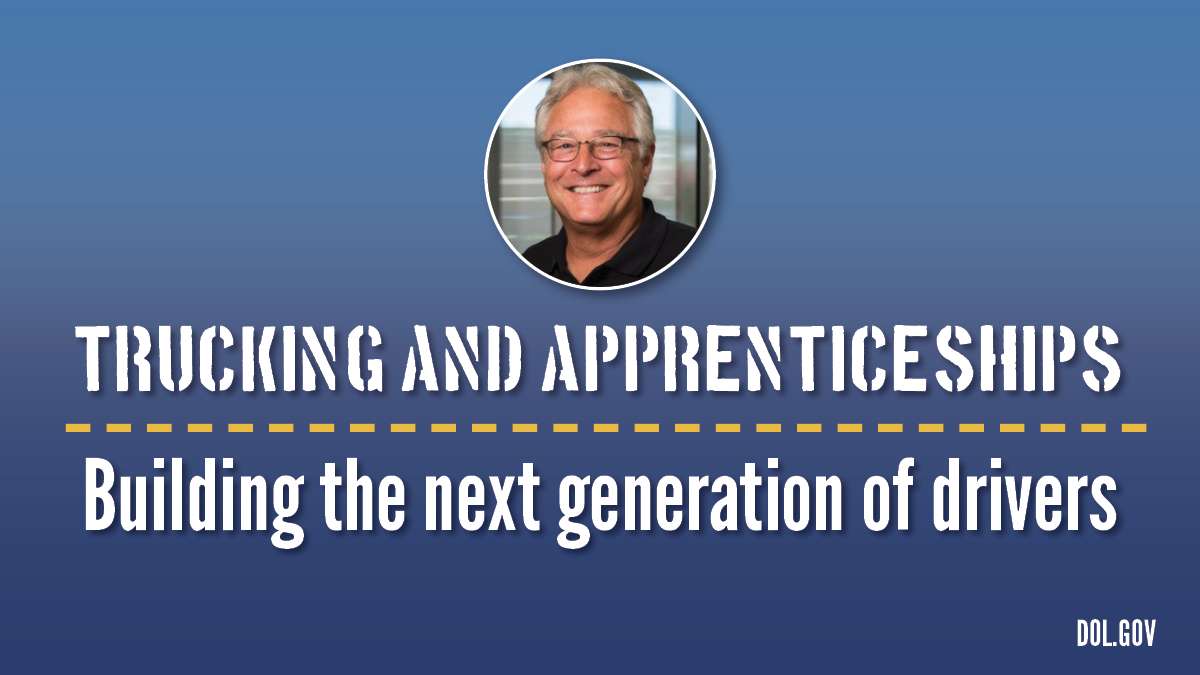
Earlier in March, The U.S. Department of Labor announced its partnership with the Trucking Alliance – an industry-based safety coalition of the alliance’s nine largest companies – to join the administration’s 90-Day Trucking Apprenticeship Challenge and promote the apprenticeship model as a solution to get more well-trained drivers to work in good-paying jobs. With the partnership’s announcement came some news: Maverick USA in Little Rock, Arkansas and an alliance member will develop its’ first-ever Registered Apprenticeship program.
We asked Steve Williams, founder of Maverick USA who serves as the President of the Trucking Alliance, to share more about his background.
What inspired you to start Maverick USA and to become a co-founder of The Trucking Alliance?
It became apparent that I needed the help of a group of like-minded motor carriers and transportation stakeholders who were much more influential than me and often critical of the industry’s efforts to focus exclusively on meeting this challenge.
So, the Alliance for Driver Safety and Security, more commonly known as The Trucking Alliance, was born. Today, the Trucking Alliance is recognized for its record of success in achieving several safety reforms and these companies collectively employ more than 90,000 professionals across the United States, working to serve the nation’s supply chain.
As the CEO of Maverick and a co-founder of the Trucking Alliance, what are your workforce and training priorities for building a next-generation trucking workforce at Maverick?
We must fully understand the challenges created by changing workforce demographics. Americans got a wakeup call about the importance of trucking when the COVID-19 pandemic happened. We realized just how important our supply chains were to our communities.
Solving our supply chain issues should never require us to lower the bar and sacrifice safety on any of the core components required for highway safety. In fact, we must raise the bar to ensure the motoring public that we are improving our game and creating high-paying jobs that create a sustainable workforce for years to come. I believe this registered apprenticeship program can effectively help our companies achieve those objectives.
Can this Registered Apprenticeship Program increase access to underrepresented populations and underserved communities?
Yes, and our companies are recruiting applicants each day with diversity in mind.
Maverick currently operates a pre-apprenticeship training school on our campus that prepares students to obtain their commercial driver licenses. We hope our participation in the Registered Apprentice Program will give greater visibility on how individuals can receive the training that is required in order to capitalize on these opportunities. Driving jobs vary but an individual with no prior experience can earn more than $70,000 in their first year with our company, with benefits.
What are some steps the industry, in general, can take to support women in the trucking industry and to build a more diverse workforce?
There are now different types of driving jobs available today, including long-haul or regional deliveries, local deliveries and what we call final mile deliveries. Although some of these jobs are more conducive to women, none would exclude women, particularly in the type of work that Maverick performs.
One of the primary obstacles for women in many of these jobs is the environment they are expected to work and live in. There are not enough safe, well-luminated places to sleep. This is another shortcoming of our Nation’s inability to recognize the importance of funding for the comprehensive solution to the challenge. Male and female drivers need a safe place to rest.
In what ways do you hope the Registered Apprenticeship Program will be a recruitment and retention tool? Why is it important for the Trucking Alliance to be a leader in this space?
First, there are many good motor carriers in the US. The carriers in The Trucking Alliance have worked together to develop best practices in recruitment and training. We have years of experience in knowing what works in putting a safe, well-trained individual behind the wheel of our trucks. We are committed to constantly improving the process so that we develop long term successful professionals to serve the public.

 U.S. Department of Labor Blog
U.S. Department of Labor Blog
